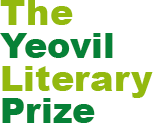For full details of the results, choose a category:


For full details of the results, choose a category:
FIRST PRIZE - Annette Keen
SECOND PRIZE - Valerie Kershaw
THIRD PRIZE - Mary McCluskey
FIRST PRIZE - Joel Willans
SECOND PRIZE - Janet Edwards
THIRD PRIZE - Rosemarie Rose
FIRST PRIZE - Fionna Inward Allen
SECOND PRIZE - Deborah Harvey
THIRD PRIZE - Tamsin Forman
2008 was another bumper year for entries. The quality just goes on getting better! All the judges were impressed by the wealth of talent that the competition has revealed. They have been moved, startled and made to burst out laughing at unexpected moments by the work they have read. More than one commented that the prospect at looking at so many entries had been daunting, but by the time decisions had been made they were sorry to have reached the end of the task.
It was our first year for online entries and we were delighted with the way you responded. Well over half the 163 Novel entries were made online, and just over half of the 300 Poems also came in as online entries; the balance tipped slightly in the Short Story category which had just over half of the 318 entries sent in by post. We were very pleased by the way the website entry system worked and are full of gratitude to our Webmaster for interpreting the rather random demands of a group of people totally unfamiliar with the problems of writing code in such a successful way. We will continue offering both postal and online entries in the future.
Many of the entries in the Novel category were well-written but somehow didn't have that spark which made one or two, less perfect in other ways, really linger in the memory. There is a terrible balancing act in writing a novel: you want to produce something that will appeal to publishers and readers but there is a risk of imitating others rather than allowing your own voice to emerge. We see plenty of 'clones' of bestsellers in the bookshops, but we were looking for something more individual from our entrants. The best entries were those in which the writer allowed the length available in a novel to develop character, and balance even the lightest tale with more substantial undertones. The Short Stories covered an impressive range of subjects and styles. The most satisfying stories were those in which we were drawn at once to a place or person in whom we could believe entirely. The 'clever' story, reliant on a final plot twist, is ultimately less satisfying than one where the outcome, however unexpected, fits perfectly with everything that has gone before.
The Poetry ranged from the playful to the poignant. It's a medium in which every word needs to work for its place, every image has to contribute to the whole and be more than a neat conceit. Emotion must be there, but restraint carries more weight than excess. With no words to spare, a title will direct the reader's attention to meanings not immediately apparent. It takes a gifted writer, and the willingness to edit and polish (and even to cut out a favourite line because it simply does not fit), to create a good poem. Some of the entries in this category lacked a sense of the poet's original thought, others tried to be too complicated where simplicity would have said more. A few took on very big themes and did not find room to make them more than superficial. Some of the poems probably had more meaning to their writers than to others: poetry is intensely personal but it needs to find resonance with a wider audience, too, if it is to succeed. The best of the entries were outstanding and Poetry Judge Dr Julian Stannard wrote of the winners, 'What a great pleasure to listen to these three quite different voices'.
For all three categories, it was the discovery of new and exciting and original 'voices' that made judging a pleasure.
the Judging Team
| Annette Keen | The Generation Club | England |
| Margaret Graham comments: ' Clever multiple viewpoint novel concerning the daily life of people with elderly parents. This is delicately, empathetically and amusingly handled. Each character is accessible and we empathise immediately. We see them as a group, they are also well placed in their individual lives. This is superbly organised, thoughtful and relevant to today. Bravo! ' |
 Annette Keen writes that ' My day job is unexciting, but I make up for this by running a jazz club in a local theatre. This is my passion, and a rich source of inspiration for characters! I write mainly short stories (some published), music and drama reviews (for the local paper), and sometimes work freelance as an EFL writer. '
Annette Keen writes that ' My day job is unexciting, but I make up for this by running a jazz club in a local theatre. This is my passion, and a rich source of inspiration for characters! I write mainly short stories (some published), music and drama reviews (for the local paper), and sometimes work freelance as an EFL writer. '
|
| Valerie Kershaw | Dancing for the Hangman | England |
| Margaret Graham comments: ' A robust original warm novel, superbly evocative of a girl of nine. The author has found Nancy's voice and we inhabit her world as she barges through life and her detecting. This is a well-balanced 'almost romp' but with a dark underbelly. ' |
| Valerie Kershaw says 'I user to write psychological thrillers and detective stories. My detective was based on a very dear friend who, quite unexpectedly, died. The stories stopped coming though, from time to time, I pottered about on my computer. Years passed. Not long ago nine year old Nancy Brown breezed in. Tentatively, I began to write. She got fed up with my humming and hawing and shoved me aside. She's almost finished her story. When she has she's going to leave me to do the boring tidying up bits. ' |
| Mary McCluskey | Search for a Shadow | England |
| Margaret Graham comments: ' Search for a Shadow explores every parent's nightmare - a runaway teenager. The ensuing search undertaken by her mother, Dana, takes her not only into the margins of society, but on a voyage of discovery about herself, her daughter and relationships in general. This is well paced, well written and does not pretend to be a comfortable read. Well done! ' |
| Mary McCluskey tells us that she is a journalist, based for some time in Los Angeles. She is now living in rural Staffordshire where she concentrates on writing fiction. Her short stories have been published in literary journals and anthologies on both sides of the Atlantic. She is working on a second novel. |
| Kate Kelly | Myth Making | England |
| Andrew Marshall | The Bastion Prosecutor - Episode 2 | England |
| Nemone Thornes | Selvedge | England |
| Julian Fox | No Ear For Music | England |
| Michelle Lovric | The Book Of Human Skin | England |
| Margaret Samson | Occurrence of the Improbable | England |
| Joel Willans | The Voice, the Fish Woman and the Coconut Girly | Finland |
| Judith Allnatt comments: ' The title is original and intriguing and the story lives up to its promise. From the first few lines, as the description moves in a cinematic fashion from a wide-angled shot of the horizon to a close up of the main character, it is apparent that we are safe in the hands of a confident writer. There is a sense of authority. The protagonist's internal conflict is developed skilfully so that the reader experiences growing emotional engagement with the character. Dramatic tension is stretched to the limit. This is confident, original writing and a wholly satisfying read. ' |
 Joel Willans tells us that he was born in Suffolk but currently lives in Finland. When not writing fiction, he comes up with slogans for a Helsinki advertising agency. His stories have appeared in a wide range of magazines including Pen Pusher, Brand, Southword and Penumbra, as well as several anthologies, including The Remarkable Everyday and the Route Compendium.
Joel Willans tells us that he was born in Suffolk but currently lives in Finland. When not writing fiction, he comes up with slogans for a Helsinki advertising agency. His stories have appeared in a wide range of magazines including Pen Pusher, Brand, Southword and Penumbra, as well as several anthologies, including The Remarkable Everyday and the Route Compendium.
|
| Janet Edwards | Checkmate | England |
| Judith Allnatt comments: ' This light-hearted story is a delight. It uses the features of the romantic comedy genre but the humour is delivered in an unforced, deadpan style. It has been carefully crafted to build intrigue steadily. It creates empathy with the would-be lovers through their quirky dialogue so that the reader is completely willing to suspend their disbelief in the deliberately preposterous plot. Both title and last line are witty. The story has both charm and an 'edge' that adds a little spice. ' |
| Janet Edwards writes ' Although my degree was in mathematics, I have done the odd bit of writing for my own amusement for many years. A year ago I started going to a creative writing class, and this spring bravely entered my first writing competition. The result came as a shock, but a very good one. ' |
| Rosemarie Rose | Antony Gormley's Bum | Wales |
| Judith Allnatt comments: ' This story creates the voice of a teenage boy (not an easy thing to do) and shows the relationship between him and his mum through convincing dialogue. The writer introduces important information casually, building the emotional stakes and keeping the reader speculating. The mix of humour and pathos is handled very well. Close observation is a real strength in this story and it creates a world that we can visualize and enter with ease. ' |
| Rosemarie Rose writes ' I began writing stories at an early age, and was soon emulating one of my heroes, Edgar Allan Poe - so successfully, that my stories were banned from Friday afternoon readings at my primary school when a mother complained her child had suffered nightmares! I have enjoyed several competition and publication successes, and hope for many more. ' |
| Fiona Allen | A Fresh Start | England |
| Arthur Ker | The Hot and Happy Chips | Scotland |
| Jenny Knight | Stew | England |
| Heather Mulkey | The Apprentice | England |
| Ami Roseingrave | Father Christmas | England |
| Jacquie White | The Watchman | England |
| Suzy Brayne | Control | England |
| Peter Elgar | Tunnel Exit | England |
| Penny Feeny | Poor Relations | England |
| John Griffiths | Passage | England |
| Dennis Harkness | Music Man | England |
| Kate Kelly | Remember Normandy | England |
| Steve Leighton | Osmium | England |
| Nina Milton | The Amethyst Dress | England |
| Peter Peacock | A Good Nights Work | England |
| Diana Sterling | Legacy Of Love | England |
| Chip Tolson | Conkering Days | England |
| Fionna Inward Allen | Fruit on the Tube | England |
| Julian Stannard comments: ' This is a delightfully playful piece. The title sets up a mythological narrative where 'forbidden' fruits are consumed in the underworld, or rather the underground: 'Its red patches echo autumnal scenes. You save me the bite I have explored like a hanging Rothko, its explosions of uninterpreted colour'. Eating fruit is never a neutral activity and the poem taps into metaphorical and comedic possibilities and often it just enjoys a certain coolness: 'I feed us both segment by segment, Editing the fishbones of white pith I remember you said you disliked.' Great work! ' |
 Fionna Inward Allen writes ' Born in 1980, I'm a writer and illustrator, and work from a little caravan in the Peak District. I'm just completing my first book - an illustrated collection of modern fables for adults called 'The Hand Museum and Other Stories' - and am currently looking for a publisher. Ideas for my poems/stories often occur on waking from sleep - known as 'hypnagogic' writing. 'Fruit on The Tube' transpired this way. '
Fionna Inward Allen writes ' Born in 1980, I'm a writer and illustrator, and work from a little caravan in the Peak District. I'm just completing my first book - an illustrated collection of modern fables for adults called 'The Hand Museum and Other Stories' - and am currently looking for a publisher. Ideas for my poems/stories often occur on waking from sleep - known as 'hypnagogic' writing. 'Fruit on The Tube' transpired this way. '
|
| Deborah Harvey | The Red of His Coat | England |
| Julian Stannard comments: 'The Red of His Coat' sets up an image that resonates throughout the poem. An old woman lies 'stripped, transfixed, a spilt reminiscence glistening on her chin', her hands instinctively searching for the threads that barely hold her life together. Contained, well-knitted, 'The Red of His Coat' achieves its emotional pitch by giving no quarter to easy sentiment. |
| Deborah Harvey writes ' Having spent 20 years raising four children, two with autism, Deborah Harvey finally has time to write. As well as poems, she is immersed in her second novel for young adults set during the witch-hunts and the Monmouth Rebellion, whilst seeking representation for the first, a tale of love and the Black Death. ' |
| Tamsin Forman | Sea Candy | England |
| Julian Stannard comments: ' Sea Candy creates an arabesque of images. Good poems are enthralled by language and we are given a breathless list which includes 'popcorn bladderwrack' and 'conch cornettos.' The child observer is spellbound as she looks on at 'a magic cache - a mermaid's sweetshop.' |
| Tamsin Forman writes ' I've written poetry for about 15 years -spasmodically - and won some prizes. I think I'm quite lazy! At intervals I take a rest to write short fiction. I am always impressed - and sometimes disconcerted - by the high quality of today's competition poetry. ' |
| Helen Burke | No Mans Land | England |
| John Feakins | Magyar Dawn | England |
| Joan Michelson | In Mt Auburn Cemetery | England |
| Kevan Taplin | The Revolution was not Televised | England |
| Michael Woods | First Communion | England |
| Timothy Gibbs | Weightlessness | England |
| Ross Hasler | Little Kingdom | England |
| Clare Hawkins | Crash | England |
| Fleur Jones | Married Life | England |
| David Olsen | The Galaxy Within | England |